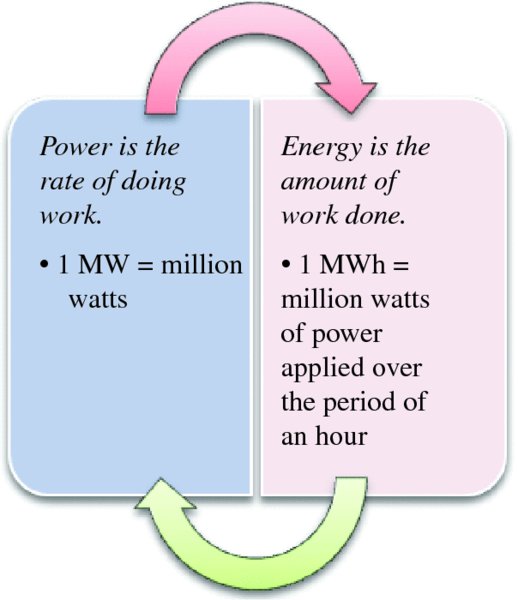CHAPTER 1 Energy Markets Fundamentals

For sake of clarity, we will focus quite a bit of our attention on electricity markets because the generation and transmission of electricity are two of the primary reasons for the existence of energy markets. In addition, I have spent a part of my professional and academic career studying and working in the electricity markets (Mack 1986, 1999). However, please note that other energy products (oil, gas, etc.) will be discussed as well.
Power and energy are two words often confusingly interchanged. These two key terms are summarized in Figure 1.1 and more rigorously defined as follows:

FIGURE 1.1 Power and Energy
- Power is the metered net electrical transfer rate at any given moment. It is measured in megawatts (MW). A watt is equal to one joule per second. The joule is a derived unit of energy, work, or amount of heat in the International System of Units.
- Energy is electricity that flows through a metered point for a given period and is measured in megawatt-hours.
- Electric power is the rate at which electric energy is transferred by an electric circuit. The instantaneous electrical power P delivered to a component ...
Get Energy Trading and Risk Management: A Practical Approach to Hedging, Trading and Portfolio Diversification now with the O’Reilly learning platform.
O’Reilly members experience books, live events, courses curated by job role, and more from O’Reilly and nearly 200 top publishers.

